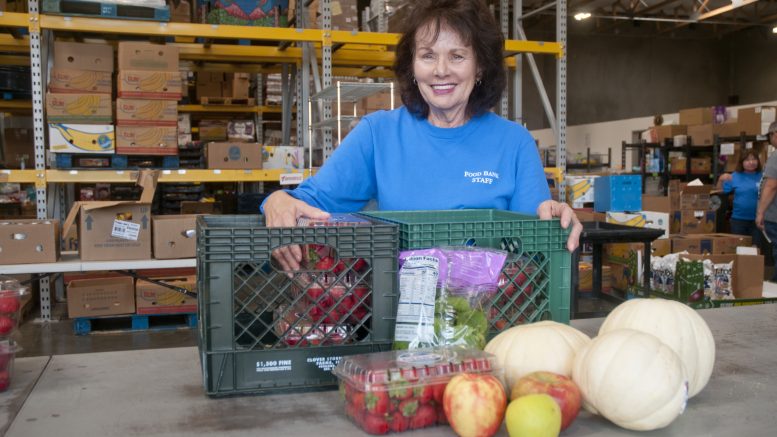New California law aims to feed the hungry while reducing waste
Nearly every day, vehicles are lined up outside Elk Grove Food Bank Services with drivers and their families seeking help. “We’ve had a constant demand for food assistance post-COVID,” says Marie Jachino, executive director of the Elk Grove Food Bank Services. “Surprisingly, it increased even more this last year with inflation. So, we’re serving about 14,000 people a month.”
But a new law, SB 1383, promises to provide new sources of food for Elk Grove’s food bank and others like it around California.
SB 1383 aims to limit the amount of food and other organic matter that ends up in landfills—which is currently estimated to include about 30-40% of the food supply. In fact, according to the California Department of Food and Agriculture, Californians throw away approximately 6 million tons of food waste annually. Organic matter that breaks down in landfills emits greenhouse gases that contribute to climate change.
“The senior population is such a vulnerable population. … Having a good diet is so critical to one’s health and well-being.”
Marie Jachino, Executive Director of the Elk Grove Food Bank Services
The new law aims to reduce organic matter in California landfills by 75%. Consequently, residents are required to sort and collect food scraps and other organic matter in separate bins. At the same time, SB 1383 addresses hunger with a plan to recover 20% of edible food. So rather than throwing out food that is otherwise safe to eat, restaurants, grocery stores and other entities that generate food must obtain a contract or written agreement with a food recovery organization, like a food bank.
Elk Grove is a diverse community with a population of more than 181,000. While the city has a solid middle class, poverty and food insecurity are still prevalent. Jachino says. “Our fastest growing population are very low-income seniors living off Social Security alone. We serve about 2,000 seniors a month here at the food bank. Our second biggest population is children.”
Much of the food bank’s food comes through donations, Jachino says, but increased demand has caused supplies to quickly deplete, even following a major food drive. “Because of the increase in demand, we’ve had to purchase a lot of our food lately, and we do purchase fresh produce from a local produce company,” Jachino says.
During the summer months, local farmers and community gardens donate fresh produce to the food bank as well. “When you go to the grocery store, produce is very expensive. So that’s one of the things that especially our senior population is so grateful for,” she says.
Elk Grove also partners with Sacramento Food Bank & Family Services, which oversees the distribution of food boxes through the U.S. Department of Agriculture for emergency food assistance and the allocation of food through Groceries Feed America from area grocery stores. “We do get some pre-packaged meals from Kaiser Permanente, which we’ve been getting for quite a few years, and these are very useful and are well received, especially by our unhoused clients,” she says.
Besides its warehouse, Elk Grove’s food bank maintains seven mobile pantry distribution sites to accommodate elderly residents who lack transportation. Elk Grove also runs a food delivery program for local homebound, medically fragile residents. But back at the warehouse, people arrive almost daily seeking food. “There have been days when we’ve had 100 households come in here. That may not sound like a lot, but sometimes there are seven or eight in a household,” she says.
Jachino says she looks forward to having access to more food through SB 1383 and that it will make a tremendous difference for Elk Grove Food Bank Services and other food pantries in Sacramento County. For food banks like the one in Elk Grove, the added food source cannot come soon enough.
“The senior population is such a vulnerable population. They have chronic health problems with diabetes and heart disease and high blood pressure and even depression from isolation and loneliness,” Jachino says. “Having a good diet is so critical to one’s health and well-being. It’s going to be a great gift not only to our agency, but to the people we see each day.”
For information on how to help the Elk Grove Food Bank, visit https://elkgrovefoodbank.org/. For more information about organic recycling in the city of Elk Grove, go to www.elkgrovecity.org/recycling-and-waste/organic-recycling.






























